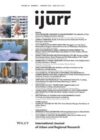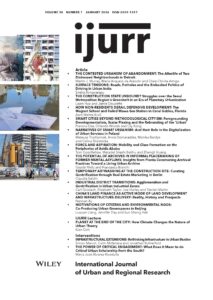In this article we show that in Southeast Asia, smart city development has become a type of digital urban transformation that is not targeted towards any particular territorial formation or settlement. Instead, development-oriented states in the region leverage the smart city rhetoric as a nationwide branding strategy to leapfrog development stages. Such smart city policies are infused with a scalar logic—which we call ‘scalar flexing’—that captures the enmeshing of local and national scales, causing local-scale smart city initiatives to be stretched across wide-ranging, national-scale urban transformation agendas. We examine the nationwide 100 smart cities policies adopted in Indonesia and Thailand, as well as local-scale smart city development in Banyuwangi regency and Chiang Mai University Campus, which are part of the selected 100 smart cities in the two countries. Leveraging insights from smart city initiatives across these scales, we argue that the rescaling of ‘smart city-ness’ needs to be analysed through the framing of ‘developing-ness’, where national development plays a critical role in shaping how smart cities are defined, implemented and experienced.
Details
Written by:
Prerona Das, Orlando Woods, Lily Kong
Digital Object Identifier (DOI)
https://doi.org/10.1111/1468-2427.70012
About DOI

